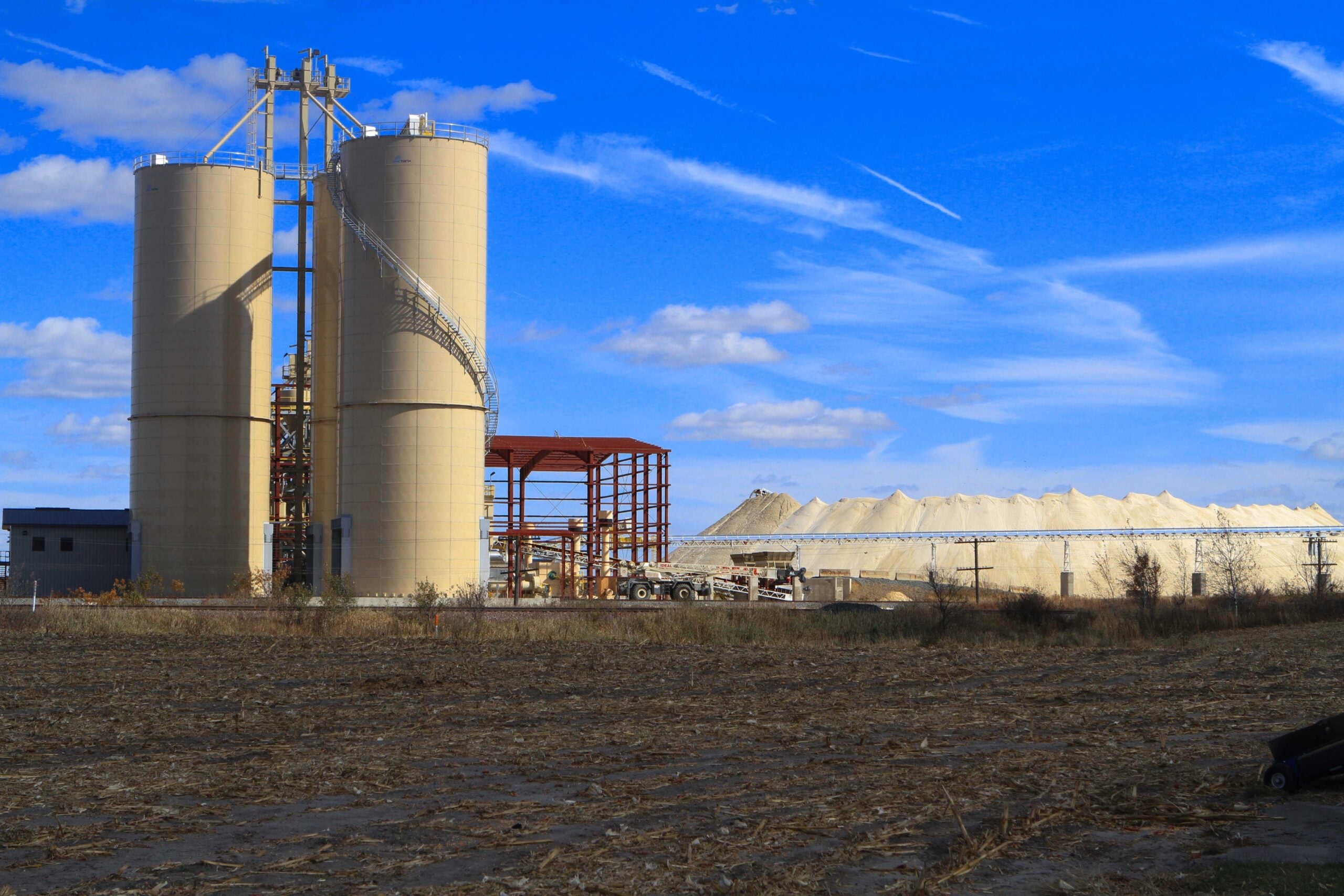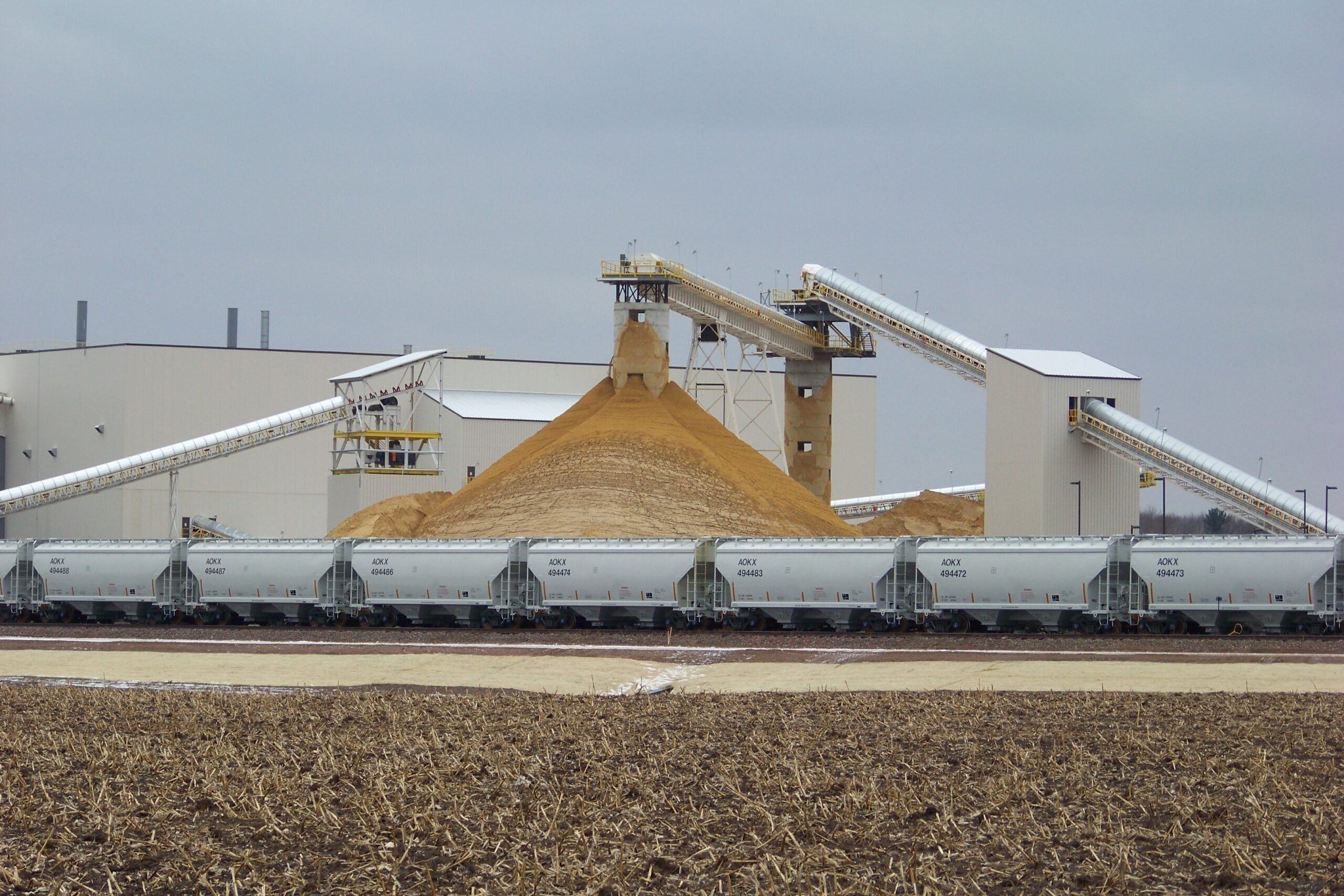As Wisconsin’s frac sand mining industry has grown so has its impact on the small geology department at the University of Wisconsin-Eau Claire. The department’s new Responsible Mining Initiative has funneled graduates into jobs with mining companies but some are worried about the close ties between industry and academia.
On a recent evening inside American Legion Post 53 near the lower campus of UW-Eau Claire dozens of well-dressed students were mingling with parents and potential employers at the at the annual UW-Eau Claire Geology Department banquet hosted by department chair Kent Syverson.
“It is my privilege to be announcing some awards and internships and recognizing some stakeholders who have made a huge, huge difference in our program,” Syverson told the crowd.
Stay informed on the latest news
Sign up for WPR’s email newsletter.
UW-Eau Claire Geology Department chair Dr. Kent Syverson reads a list of 2016 scholarship and internship awardees through the Responsible Mining Initiative. Rich Kremer/WPR
Those stakeholders are a handful of frac sand mining companies that have donated nearly $150,000 since 2013 for student scholarships and grants along with equipment for the department through the school’s Responsible Mining Initiative. Syverson built the program with the help of mining companies and environmental consulting firms.
The goal is to expose students to all sides of the mining industry. A hydrogeology class looks at how severely mining practices could impact groundwater. Students even hold mock county board meetings where developers seek approval for a sand mine. And outside the classroom, the initiative looks to give student real world experience.
Severson said this year there are 18 paid internships with combined salaries of more than $140,000.
“These paid internships with sand mining companies have given our students valuable experience whether they work in sand mining or not,” he said. “And the Responsible Mining Initiative isn’t just about mining, we’re preparing students to work in environmental consulting and to work for regulatory agencies as well.”
Nick Matula of Appleton was one of the first geology students to get an internship through program. Starting in 2014, he worked for Texas-based mining company Smart Sand which has a plant in Oakdale, Wisconsin. Matula was offered a full-time job as a mining specialist before he even graduated last year.
“It is a relief, that’s for sure because the job market everywhere for geologists is pretty low because of commodities,” said Matula. “To be able to have gotten a job in the sand mining industry with Smart Sand even when the market wasn’t the highest was very crucial.”
But some skeptics like attorney Kellen McLemore of Midwest Environmental Advocates worry close ties with industry could influence what the department teaches and researches.
“When industry groups provide funding for a specific program or for a specific student, that presents the opportunity for the recipient of those funds to feel, maybe, an obligation to subscribe to the belief or views of those industry groups,” said McLemore.
Geology Department chair Syverson rebuffed those concerns and said his program is dedicated to scientific research and donors don’t have any control over curriculum. And, he argued students wouldn’t have the same opportunities without outside support.
“We want industry to invest in education,” Syverson said. “We want the state of Wisconsin to invest in education and we would be in a world of hurting right now if we didn’t have committed stakeholders right now who are helping us out.”
Syverson said the Responsible Mining Initiative is still in its infancy but he and the geology staff are now seeking approval for three new mining related certificates focused on the relationship between industry, environment and regulation.
Wisconsin Public Radio, © Copyright 2024, Board of Regents of the University of Wisconsin System and Wisconsin Educational Communications Board.


